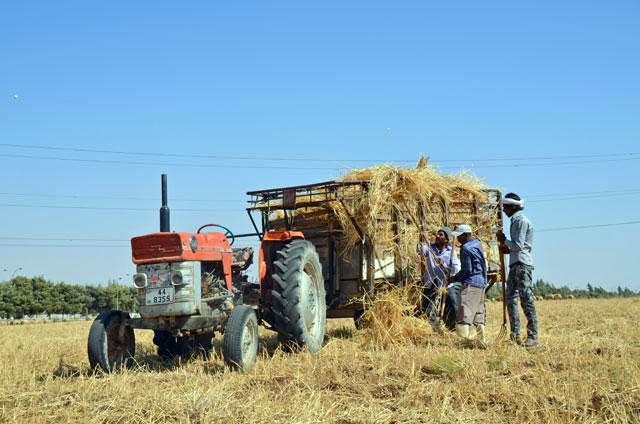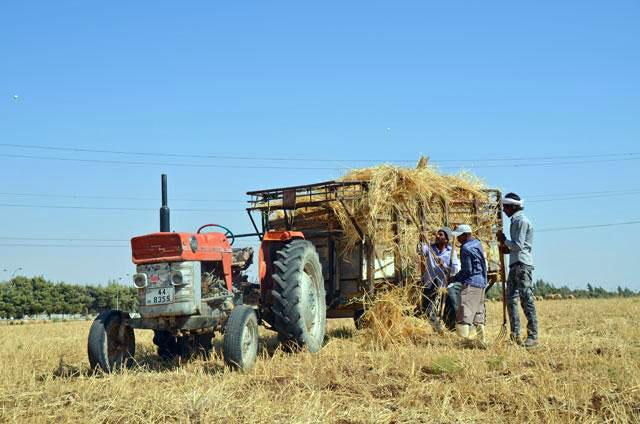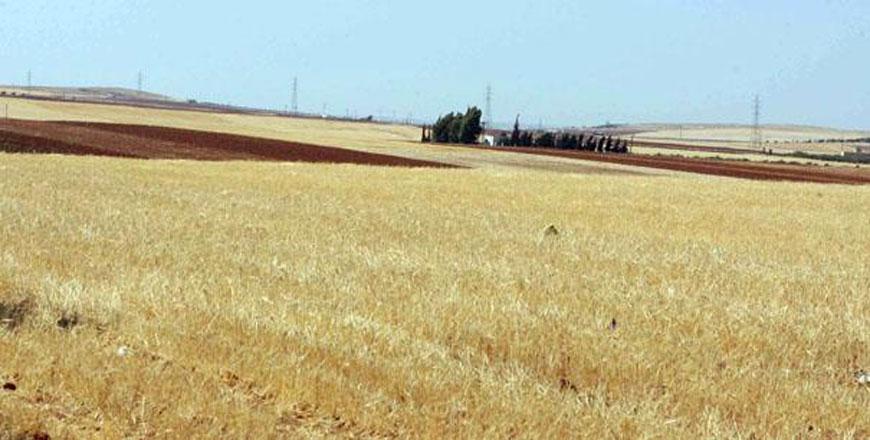You are here
Wheat reserves boosted by new silos — ministry
By JT - Jul 13,2019 - Last updated at Jul 13,2019

Farmers harvest wheat in Irbid in this undated photo. The Ministry of Industry, Trade and Supply on Saturday said the Kingdom now has a surplus that could cover local consumption for 12 months thanks in large part to horizontal silos (JT file photo)
AMMAN — The Kingdom’s current reserve of wheat stands at around one million tonnes and can cover local consumption for 12 months, Minister of Industry, Trade and Supply Tareq Hammouri said on Saturday.
The ministry, in a statement carried by the Jordan News Agency, Petra, said that the reserve has been boosted by the establishment of horizontal silos, which it called a “pioneering project” contributing to improving Jordan’s food security.
The horizontal silos project, the first phase of which was implemented in 2009, has enabled the ministry to buy more wheat when international prices fell.
Horizontal silos are among the best means for storing wheat in the world and guarantee the preservation of wheat without the need for chemicals, according a ministry statement.
While only one million dunums of land in Jordan is used to grow wheat and barley, the country requires four million dunums of land to raise enough of these major crops to cover consumption.
Farmers grow wheat across the country, but grains are mainly cultivated in Irbid and the Houran plains in the north, as well as Madaba and Husban in the central region and Arrabeh in the southern governorate of Karak.
The Kingdom, which consumes more than 80,000 tonnes of wheat per month, imports more than 96 per cent of its wheat needs, as domestic production covers only around 4 per cent of demand.
Jordan imports the majority of its wheat from several countries, including Ukraine, Kazakhstan, Russia, Romania and the United States.
Related Articles
AMMAN — High rainfall during last winter resulted in increased cereal yield during the current harvest season, especially in the northern re
AMMAN — Farmers on Monday expressed gratitude for the government's decision to buy their wheat and barley at higher prices.Interviewed by th
AMMAN — His Majesty King Abdullah on Sunday visited the Ghabawi horizontal bunker silos, which were built upon His Majesty’s directives to e














